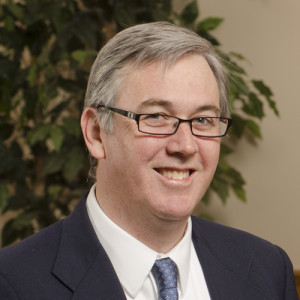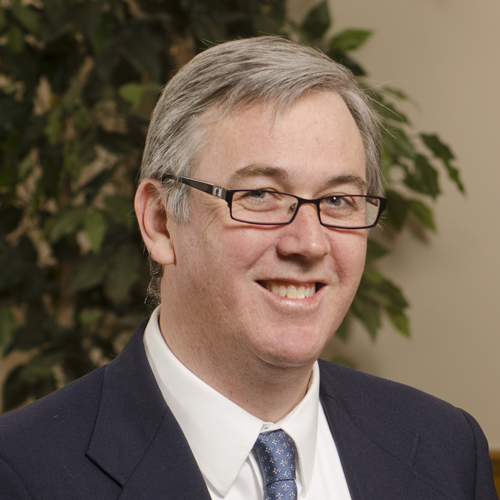For the Still Deciding Student

At a Meet Maryville event a couple years ago, just before the launch of Maryville College Works I spoke with prospective students and parents about studying the humanities. I was struck by one father’s question: He understood why we would insist on connecting the liberal arts with career success but, he said, it also worried him. He was thinking of his daughter, growing into a young adult, for whom he wants excellent career preparation but also much more.
His question was obvious: Could I assure him we offer more?
In line with so many other colleges like ours, we at MC have turned to outcomes assessment and, perhaps especially, employment outcomes as a measure of our educational effectiveness. We want to make the decision to come here easy, and so we have powerpoints and data points and talking points at the ready to answer the questions we hear people asking, like, what jobs can you get with a degree in the liberal arts? Once those questions are settled, we move on – we say – to the deeper values that we truly treasure.
But this father was concerned. I think he worried that, even if we are clear about our mission as a liberal arts college, perhaps our way of communicating it subtly restricts the freedom we allow students to explore the problems and capabilities of their own lives. In prioritizing the “practical” questions, do we risk repressing the free spirit of liberal inquiry?
To be sure, questions about outcomes are not unreasonable ones. And, in fact, studies suggest that dedicated liberal arts students develop a multi-faceted resourcefulness that continues to open doors for them over the span of their career. MC Works is supposed to foster this, by requiring students to pursue a “significant practical experience” that will enrich connections between their endeavors here at the college and life beyond campus, both now and in the future. This is a good thing to be doing and, it seems to me, true to the spirit of liberal education.
We would do well, though, to consider what freedoms we may compromise when in the course of connecting college and career we redirect the attention we give students onto, say, deciding a major early and embarking on a program of study that we presume, by the uncertain light of an anticipated post-college career, makes evident what counts as a “significant practical experience.”
For instance, I worry that we might neglect the special freedom it takes to be a student “still deciding.” Sure, “still deciding” can be just a euphemism for “indecisive.” But at Maryville College, we want for our future graduates that some part of you should be always capable of still deciding.
How will you make informed and worthwhile decisions if you cannot be still deciding, confident in your freedom from external and internal forces of your lives that pressure a rush to judgment? We want you to be open all your lives to new ideas and new evidence. We want you to discover new knowledge and to dissolve attachments to ignorance. We want you to be critical and creative participants in private and common life. That is why we are – or need to be – ready to stand up for the invaluable worth of still deciding.
Why not just go ahead, though? Make up your mind, and act! Why risk indecision? Why not just get on with it, imposing our will on circumstances and making our mark on the world? Life is short, so mightn’t that be a preferable life strategy?
I’m sympathetic to that impulse, but I doubt it. For one thing, life is short. It can also be sweet. But stifling our curiosity about it is one way to make life nasty and brutish. Many are the pressures to decide which of our interests to pursue and which to leave behind on a narrow track from cradle to grave and call it our “career.” But I suppose that the fantastic range of human experience and the fascinating ways of studying it are on their own enough to convince us that we’ll be better for allowing ourselves to wander undisciplined in the world a bit, free to explore – at least during our college years, if not our whole life long.
Beyond such free-wheeling curiosity, I imagine a compelling reason to be always still deciding arises in real confrontation with the great challenges of life, when who and what we are comes into question: partnering, for instance, and parenting; shaping laws and customs that guide our different communities; working for good purposes; dying a good death.
No major can answer challenges like these for us. Only we can answer for who we are and might become. Yet, many different ways of knowing might help us address the challenges. Perhaps, concerning the great challenges, we can only hope to approximate informed and worthwhile decisions. But if we have kept ourselves able to be still deciding about the possibilities, not always already decided, then maybe we can make better decisions than otherwise.
At bottom, though, what enables a person to live always at least a little still deciding, without falling prey to mere indecision? Our lives are terribly complicated. Each day has enough worries of its own. Meanwhile, we human beings are terribly skilled at creating complication for ourselves and causing suffering thereby. Where can we find the clarity – and, more importantly, the courage – to resist indecision on the one hand and rash decisiveness on the other?
Distinct traditions across many cultures point toward a source: Wisdom.
Wisdom, we could say, is to attain simplicity in the midst of – without sacrifice of – complexity. There have been, I suppose, some truly wise people. Nevertheless, wisdom draws men and women in quest of it, and this pursuit, always hard and demanding our life-long attention, has in Western tradition been called philosophy or “love of wisdom.”
Here are some major ways it has been understood: as an investigation after a steady principle or principles which provide stability through the change of the world, or as the adoption of an attitude to one’s life that permits courage despite change, or as the cultivation of a sensitivity to change so that one can flow along with it. The biblical wisdom literature commends the “fear of the Lord,” for instance, and it can be elaborated in each of these ways.
In the end, each and every one of us will be simplified. There is no question about that. For death is the great simplifier. There is question, though, of whether we shall die wisely or like fools. In his spare poem “Simplify Me When I’m Dead,” Keith Douglas, a British poet killed in action in 1944 during the Normandy invasion, asks his reader to view him through “time’s wrong-way telescope” and “see if I seem / substance or nothing: of the world / deserving mention or charitable oblivion.”
In face of the difficulty of life, it’s easy to understand why we might fear that we will end our days undeserving of mention. That the fall into oblivion will be the kindest we should expect. And so it is tempting to be intolerant of life’s complexity and then arbitrarily simplify ourselves: clinging to, say, a religious doctrine or a political ideology or an idea of our professional identity.
It’s easy to understand why, in present social and economic circumstances, college students might cling to such simplistic notions already, as they undergo the momentous change from high school kids into adult citizens; easy to understand why, then, the decision of a major might seem like a confident act of self-determination; but also easy to understand why this feeling of decisiveness might nevertheless be also a way of fooling ourselves.
But wisdom counsels patience: with these times, with yourself, with the general and inevitable difficulty of life. Wisdom calls us to love and learn of the complexity of our world, still deciding that in time we may learn a richer and truer path to simplicity than that of impatiently sacrificing ourselves for simplistic ideals. Wisdom calls us to confidence in this one life-changing quest we share.
Let’s go.

